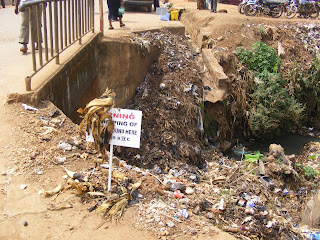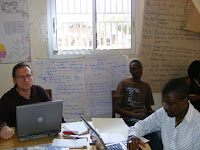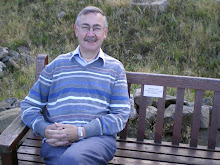


I’ve been very busy lately preparing a course I’m delivering on the managing of change. The usual stuff: PowerPoint presentation, flipcharts and handouts. I’ve tried to allow space for participants to interpret my pearls of wisdom in their own context.
You’ll remember that I’ve mentioned the issue of waste disposal before. The local council has reacted to criticism of its waste disposal policy by putting up signs on either side of the stream into which market traders routinely push all their unwanted material (maize husks, plantain peel, and rotten oranges. In the photo you can see the consequence of the brand new signs. In my presence people carry on using the stream for disposing of their rubbish.
I’ve met some impressive people since I’ve been in Cameroon. The long-term volunteers show a quiet determination to make things happen. I am particularly impressed by the commitment of the VSO volunteers located far from Bamenda. In the past week I’ve also met Penny Fraser, Director of the United Africa Association, with a strong interest in conservation work, and a clear lover of Cameroon and its people.
I remain amazed at skills demonstrated by local craftsmen. Here I don’t mean the manufacturers of wooden masks for tourists, but local furniture producers, who work in the open air, turning out wooden and even cane furniture. The photo shows the cane worker.
The first picture shows a craftsman - wearing a top with a Dutch company name - and the second shows his raw material. The third shows a rubbish sign, with rubbish on it!


















































